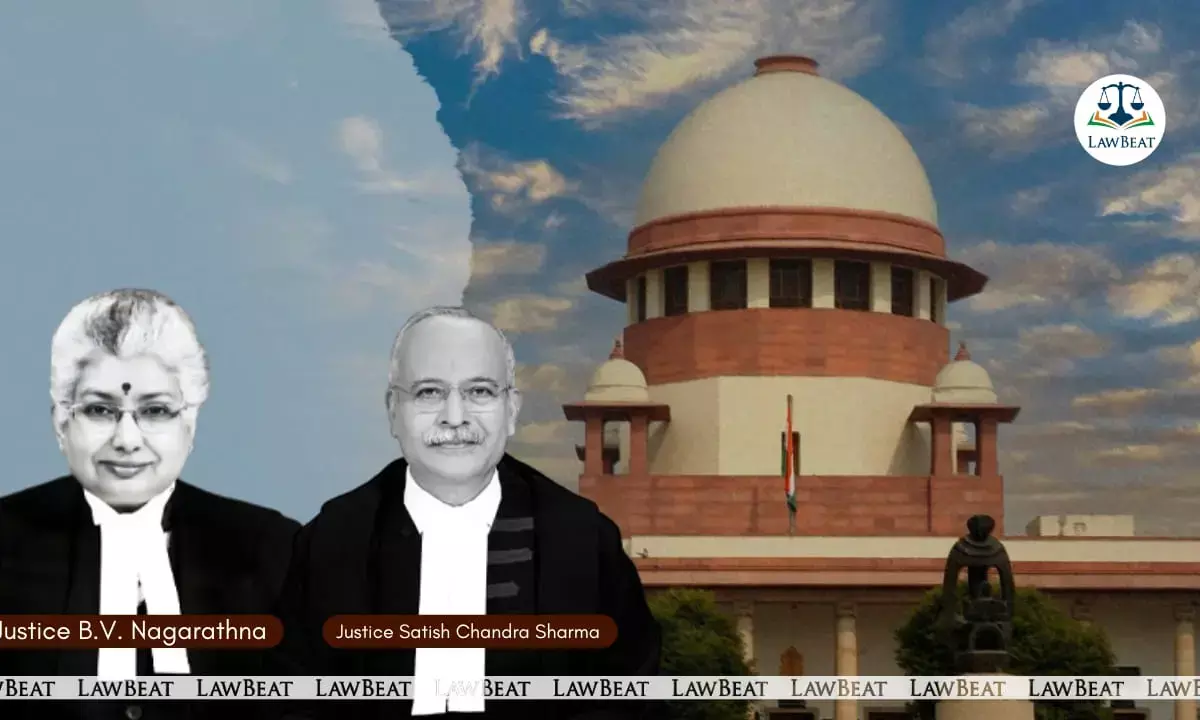Delay Not To Be Condoned As Generosity; Justice Must Not Prejudice Others: Supreme Court

The Supreme Court has on May 13, overturned a decision of the Madras High Court which had condoned a 1,116-day delay in filing an appeal against an ex-parte decree, holding that such repeated invocation of rejected grounds constitutes an abuse of the process of law.
The Bench of Justice BV Nagarathna and Justice SC Sharma allowed an appeal challenging the High Court's decision to entertain a delayed appeal under Section 96(2) of the Code of Civil Procedure (CPC), despite the fact that the respondent had already exhausted their remedy under Order IX Rule 13 CPC, which was dismissed even by the Supreme Court in earlier proceedings.
"This Court has repeatedly emphasised in several cases that delay should not be condoned merely as an act of generosity. The pursuit of substantial justice must not come at the cost of causing prejudice to the opposing party. In the present case, the respondents/defendants have failed to demonstrate reasonable grounds of delay in pursuing the matter, and this crucial requirement for condoning the delay remains unmet," the Bench observed.
The Court clarified that a litigant cannot re-agitate identical issues; such as non-wilful absence or improper service of summons, in a separate proceeding after those very grounds were previously raised and rejected in a different legal remedy.
“This Court is of the considered view that such a repetition of grounds already scrutinized and held untenable amounts to an abuse of the process of law,” the judgment authored by Justice SC Sharma stated.
The Court underlined that although the applications for condonation of delay were moved under different provisions of law, they were concurrent remedies, and once a court of competent jurisdiction had rejected the explanation offered, the same reasoning could not be re-argued under a separate provision.
“If the application filed under one provision has already been dismissed by applying judicial mind, a subsequent application reiterating the same contentions cannot be entertained,” the Court observed.
The Bench emphasized that bona fides of the explanation for delay must be established before the merits of the main matter can be looked into, “It is a well-settled law that while considering the plea for condonation of delay, the first and foremost duty of the court is to ascertain the bona fides of the explanation offered.”
The Court also noted that condonation of delay is not a matter of charity, stating that "substantial justice must not come at the cost of prejudice to the opposing party."
Since the respondent had failed to demonstrate any fresh cause or additional material to justify the delay, and had merely relied on grounds already dismissed, the Supreme Court found the High Court’s decision to condone the delay unsustainable.
Accordingly, the Court allowed the appeal and set aside the Madras High Court’s order, restoring the finality of the ex-parte decree.
Case Title: Thirunagalingam v. Lingeswaran & Anr.
